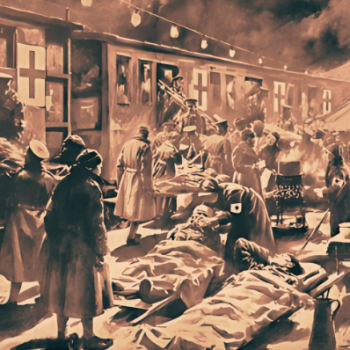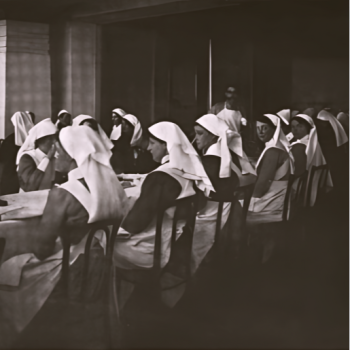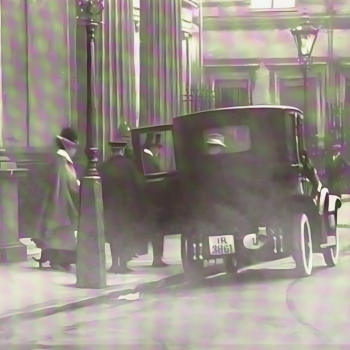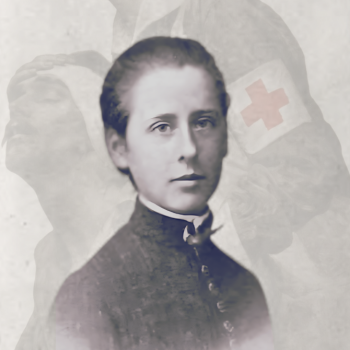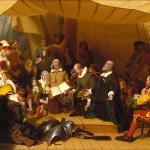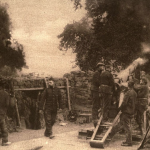PART IV
THE FALL OF ANTWERP
The fall of Antwerp was one of the most dramatic incidents of the War. Coming when it did and as it did, it cut sharply across the hopes of a world which was awaiting the outcome of the siege in anxious suspense; a world which, despite the gathering evidence to the contrary, still clung to the hope which had been kept alive all through the terrible weeks since the first shock of Liège, that there must come one great and decisive Allied victory which would break the force of the German invasion and bring about the collapse of the German power. So, this last gallant stand of little Belgium aroused universal sympathy and attention. In view of what actually happened, it seems to us now almost incredible that we could ever have felt so confident that Antwerp was impregnable; that the ancient conviction of its complete immunity against attack should have survived, and survived with such tenacity; that almost up to the end, although we had seen Liège crumbled into dust, and Namur shattered and desolated, Antwerp was still looked upon as proof against any and all siege guns, no matter how gigantic. The name of Brialmont still wielded its magical power.[1] “Why, they can’t take Antwerp,” I often heard it asserted by those who were supposed to know. “It’s perfectly safe. Wait and see!” So, we waited— and we saw.
The taking of Antwerp was a military necessity to the Germans. When, early in August, they had “hacked their way through Belgium,” and had then turned south into France for their rush on Paris, so valiant had been the Belgian resistance that, time being precious, and dangerous though it was, the Germans were obliged to leave Antwerp behind them, still proudly unconquered, and a constant menace to their lines of communication. And although every man was needed to increase the strength of the invading forces in France, a whole Army Corps had to be left to watch, and if possible, to harass into submission, the small Belgian Army which, however, continued stoutly to hold its own inside the ring of forts surrounding the last of the great Belgian strongholds. As it turned out, however, it was the little Belgian Army that harassed the powerful Germans, for, at the most critical moments for the enemy, it made sortie after sortie, the chief one being while the battle of the Marne was in progress, when the Belgian attack was so determined that German troops, starting south, were held in check until the perilous days for the Allies were over. No wonder that the Germans decided, at all costs, to clear their exposed flank!
Antwerp, encircled as it was by no less than four lines of defense, each line considered sufficient of itself to withstand most shocks, was naturally looked upon as one of the best fortified cities of Europe, and it is not surprising that when Brussels was in danger, the Government decided to remove to the great northern stronghold where, if there were to be any safe spot, it would probably be able to remain unmolested. This had been about the middle of August. By the first days of October, the real state of affairs was only too apparent; the situation had become desperate, the Belgians being forced to retire little by little. Even the British reinforcements could not avert the catastrophe—they had come too late. There was a worse danger, however, than the loss of Antwerp itself. This was the threatened cutting off of the only line of retreat left open to the Belgians; that narrow stretch of unconquered territory to the north and west. If the Germans were to force the passage of the Scheldt, the Belgian Army would lose its last chance of joining the Allies; its isolation would be complete. There was not a moment to lose. Great masses of the enemy, from the regions of the Marne and the Aisne, were pressing north by way of Lille toward those much-coveted Channel ports. At all costs the line of the Yser must be reached before it was too late. Once there, and in touch with the British and the French forces, there was still a fighting chance of saving that scrap of Belgian territory between the Yser and the sea, that tiny remnant of the Belgian Kingdom which would also provide a strong defensive barrier for the rest of the coastline, sweeping south. It was thus that little Nieuport became the pivot on which, for the moment, the fate of nations seemed to hang.
It came about, therefore, that toward the end of the first week in October, we who were in Ghent began to see many new sights, and although some of us felt that we must long since have seen all the sights that ever could or would be seen, we had more than one new experience in store for us. We had had so many false rumors regarding the coming of the Germans, that most of us had, I think, ceased to pay much attention, and we continued our work as we could. Ghent was an open city, and we anticipated a “peaceful occupation” at the worst. The Allied troops would, of course, leave when they had to leave; the elephant-grey motors, marked with the familiar “Service Militaire,” would vanish; the British Red Cross doctors and nurses also, and all the Allied wounded; even the brilliant and incongruous bottle-green uniforms of the Belgian Carabiniers, with their strange, patent leather, flat-topped hats, and the green coats, scarlet breeches and huge busbies of the Guides, to all of which, because of their picturesqueness, we had become so much attached, would now be seen no more—but the Belgian civilians would stay, because it was their country, and why should not “neutrals” stay too?
Those last days, before the actual bombardment of Antwerp began, were crowded ones for me, for our small unit had many calls, and we continued to range over miles of country, sometimes along open roads, where we were in danger of making targets of ourselves for the enemy, close at hand; sometimes along less precarious, more sheltered lanes. Many heroic deeds were done at this time, some of which I heard of merely, some of which I saw. One seems to stand out in my memory, clear cut, like a cameo, even against that vivid background of daring and of sacrifice. Perhaps this was so because it was my first sight of that particular kind of heroism. A small outpost of some fifty Belgians had been left (not far from Berlaere, I think it was), to guard the retreat of their comrades; a retreat which the enemy’s overwhelming numbers had forced on them. In the ebb and flow of that battlefront; on that blood-drenched ground, every inch of which was fought for, such a necessity was not uncommon. It had been the duty of this little band of men, all of them volunteers as we heard afterward, to stand and face, unflinching, the certain death which that post offered. Most of them were of the peasant class only, and they had known but too well, as, one by one, they stepped forward out of the ranks, what their fate would be; there could be no question as to that, but they had not faltered. And there they had stood; there they had fired their last shot; there they had fallen; and there we saw them lying—dead. The beaten and crushed grass around was reddened with their blood. Every man, true to his trust, had fought till he could fight no more, and then he had died. He had given what he had, all he had. And there was a priest, black-robed and wearing a Red Cross brassard, lying dead among them. I wondered how many of the dying he had shriven before he, himself, had been shot down. That lonely little outpost, with its silent yet eloquent dead, made an appeal which I always associate with those last hours of mine in what was still unconquered Belgium; for that ground, which they had so gallantly defended, had later been temporarily regained (that is how we had been able to pass that way), but the little outpost had paid the great price for its recovery—even to the last man. How strange it is, as you stand looking at a scene like that, its unfading glory searching to your very depths—suddenly a veil seems torn aside, and you recognize that here was found the real life, and that in that life, deeds such as this are the usual, perhaps almost the commonplace. To those simple men at that great hour of choice, there was but one simple thing to do—to offer their lives as the price of freedom, for their country and their comrades. Did they hesitate? Not one. They had stepped across a threshold into a land of light, where they saw with clearer vision the glories which are hidden from our earth-dimmed eyes, and it is we, still groping in the shadowland of unreality, to whom such deeds appear heroic. In that radiant land, the glad and eager giving of one’s life must be the divinely natural.
So those last days, before the great city was taken, slipped away almost silently—silently, because we had long since forgotten to take time into consideration. They slipped away as sand slips noiselessly through an hourglass—and then the end came.
No one who saw it will ever forget the evacuation of Antwerp; its appalling suddenness; the horror and madness of that flight of terror-stricken people. It was like the bursting of a dike. Up to the last moment, before the actual bombardment of the city began, the old illusion that the splendid fortifications would defy even the heaviest of the German siege artillery, remained unshaken (at least among the inhabitants in general,) and the greater part of the people of Antwerp were wholly unprepared for the sudden blow when it fell. They awakened one morning to find that the Government had left during the preceding night; that all over the walls of the houses and public buildings, notices were posted announcing the probability of almost immediate bombardment, and advising instant departure for those who had it in their power to leave. Those who could or would not, were to descend to their cellars and to stay there. There followed a veritable stampede, many not even going back into their homes to gather up a few of their most cherished belongings. They poured out of Antwerp as a river rushes and roars when a dam gives way. So completely taken by surprise were they, that only two or three avenues of escape remained; one of these being along the road through St. Nicolas and Lokeren to Ghent. That is how I chanced to see so much of it. But it was not only from Antwerp itself that they came; it was from the countryside also—the countryside within a radius of twenty miles, for the terror had spread like wildfire. It is said that more than four hundred thousand were in flight. Along every road they came trooping, by every lane or smallest path; across the untrodden fields they swept like autumn leaves driven before a storm; and, to add to the mad confusion, drawn as if by a fatal attraction into that ghastly current of terrified fugitives, rushed many of their farm animals, cows and sheep and goats. Much of it was a repetition of what we had been seeing for days, but immensely magnified, intensified. What made it different, too, was that, as the day wore on, the thunder of the great siege guns grew louder, more terrible at every moment.
It was not only the civilian population which was surging westward, how ever, in that “race to the sea,” for along that same road came a large part of what was left of the little Belgian Field Army—perhaps the saddest sight of all just then, after the splendid fighting. In as much order as it could maintain, with wave on wave of refugees beating upon it, it was retreating to the Yser; the Garrison Army followed the next day, I think. This was something I had never before seen—an army in retreat, and it is a very moving sight. That road from Antwerp is none too wide when, passing along it, you have columns of troops whose progress is hindered, if not blocked, by masses of fleeing refugees. There was almost inconceivable congestion and confusion, and I have often wondered how any progress could have been made at all; but the steady, dogged tramp, tramp, tramp of that little retreating army; the broken, terrified shuffle, shuffle of those thousands upon thousands of weary civilian feet, never ceased for a second—it seems to me I shall hear it always. The Belgian Army, as I remember it, kept remarkably good order; its spirit remained Belgian—one would find it hard to give higher praise than that. The men, weary and spent as they were, after their stubborn fighting against almost hopeless odds, some of them not yet wholly recovered from wounds, their heads still bandaged or arms wrapped round with gauze, kept step in a kind of defiant rhythm, shoulder to shoulder, their rifles in place, their heads held high. They were retreating, but they were not beaten. Anyone could see that. So, they passed and passed and passed. Of course, I did not see it all; how could we spend our priceless hours—hours now drawing so rapidly to their end—watching even a retreating army? But we met it, or parts of it, more than once in our rapid journeys to and from our different villages and towns during the whole of that sad day, and afterward the refugees alone remained to us. We worked feverishly to gather in as many of the fallen as we could, no longer waiting for “calls” as formerly. The fields and lanes were literally strewn with the exhausted and half-dead. Our space was limited; to make a choice, when we wished to gather in all, was a grievous and heart-breaking task, knowing, as we now did, that only a few hours more of work would be vouchsafed us—and after that, the enemy! Some distance out of Ghent, and well off the beaten track, there stands a small château in its lovely park. This park is flanked by the tiny village of E——, a handful of houses, and a little church, the center of peaceful Flemish life. The château and park are the Belgian estates of an old French family who, for many generations, have spent their summers here in happy retirement. The present owners were two elderly ladies, the Comtesse de R——and her slightly younger sister, and it was here that fate threw me, I might say, on their very doorstep, on a night of nights. It was at the end of a long day; we had made many trips to the outlying places, carrying our sorry freight back to Ghent, then starting off again almost at once. On this particular trip of ours, we were homeward bound when, stopping for a moment in the little village of E——, we were asked if we could make room for two refugees who were in great need of immediate medical attention, the kind of attention which the château found it impossible to furnish. This was only to be accomplished if one of the workers gave up a place in the camionette, and waited until it should return, probably within the space of a few hours. As I was the latest comer among them, I offered to stay, and this being agreed to, we drove to the château to collect our two new sufferers. After a general shifting about of our refugees, the two medical cases were somehow tucked in; I reluctantly parted with a small bundle, really a baby if you got it unwrapped—a tiny refugee baby which had been for a long while sleeping quite peace fully in my arms (the only peaceful thing we had seen all day)— and off went the carload, leaving me, as an uninvited and very grimy guest, on the hands of these two charming and dignified old ladies. War, as all imminent danger, is a great opener of hearts, and it was not five minutes before I was made to feel rather more than welcome. Indeed, as I knew France fairly well, while I had known Belgium for a few days only, we found much to talk about, many ideas to exchange, information to give and receive. It was toward evening, and soon dinner was served—a frugal enough affair, in consideration of the sorrowful times we were passing through, but served with all the quiet and repose, the attention to the smallest detail which one would expect in a household of that kind. I remember that the ancient butler, Félix, with his delightfully polished manners, his official dignity, his almost inaudible exits and entrances, was like a creature out of a long-dead past to me, who had been seeing nothing but horrors, hearing nothing but noise for so long. That whole dinner, the beautifully appointed table, the soft candlelight, the dim, serene faces of my two hostesses, the peace, the aloofness, is a memory in itself. Once during the meal, Félix had come to Madame de R——’s side and had said something in a low voice, but whatever it was, the peace remained unbroken, the serenity undisturbed. They probably saw how tired I was, for with true French courtesy, the War was not even mentioned until we rose from table, and so sharp and sudden was the contrast of this hour with the crowded hours of the days just gone, that I believe I, for the moment, had never so much as thought of the approaching Germans. Rising from dinner, Madame de R—— turned to me, however, and said, as though she were mentioning the most casual affair:
“News has just been brought me that the Germans are only a few miles distant. Shall we walk to the entrance gate of the park? I expect my messenger to bring me further news.”
I took a deep breath. At last! Slowly we walked through the autumn darkness, down the beautiful, long, winding driveway— we three women who, but a few hours ago, had not even met.
“It will be best not to talk,” said my hostess in a low voice, so we walked in silence until we came to the fine old gate which was the entrance to the estate—and there we stood. I suppose it was about nine o’clock. I remember that I listened to the faint sound of the night wind in the tops of the tall poplar trees which lined the avenue, and that it was the only sound I heard. There was a kind of ominous silence, like the great and awful hush before â storm, and we stood there, every sense alert. Presently, off in the distance we heard the sound of running feet, running, running—oh, such urgency in that sound! I confess I felt my heart thumping in my throat. I could not help it. On and on came those running feet, and then an elderly man, breathless, but perfectly steady, shot suddenly out of the darkness, and stood before us.
“They are here, Madame la Comtesse,” he said rapidly, standing hat in hand. “They say they are swarming in thousands along the Ghent highroad—François, who saw them, told me. I did not wait to see if many are coming our way. I saw some scouts pass first— they did not see me, for I was hiding in a ditch— and after they had gone, I heard the tramp of marching men and horses in the distance, and then I ran to bring the news of their coming.”
“You have done well,” came Madame de R——’s quiet voice, though it had a stern ring in it. “Now go back to the village as quickly as you can and tell the people. Above all, tell Monsieur le Curé. Remember what the King has asked of us who are civilians—that we shall remain quietly indoors, and beyond everything to make no demonstrations. Go across the park, not round by the road—it is shorter and safer. Go quickly! Come!” she said, turning to us, and we walked rapidly back toward the château. Old Félix was there waiting, and as we mounted the steps and passed through the entrance doorway into the wide, marble-floored hall, at a sign from his mistress, he noiselessly closed the heavy panel-led doors, and lowered a great iron bar across them. The shutters were already closed, and only one dim light burned overhead.
“Come!” said Madame de R—— again, and led the way into a small salon which overlooked the hall, and which was also but dimly lit, and there we sat down, and again we waited, in silence. I have never known how long we waited; I have never even tried to guess. We were living at such high speed that it might have been the tick of a clock, or it might have been an eternity, but suddenly, they were on us. We heard them approaching nearer and nearer; along the poplar avenue they came, and across the flagged court, where horses’ hoofs rang sharply, and where guttural voices began to break the stillness of the night. Then Madame de R—— rose, and making a motion to us to stay where we were, she walked quickly out into the hallway, and took her position directly in front of the entrance door, but a little distance back. From where we were, we could see everything that happened. She was magnificent as she stood there, proud and erect, her white hair piled high on her head, over a high smooth forehead; her finely chisel-led features clear, even in that dim light. With her arms folded in front of her she waited, haughtily, a French aristocrat to her finger tips. Félix stood in silence near the door, and presently we heard the sound of heavy feet coming up the stone steps. Then a sharp, guttural order, followed by what we all knew must come— because we had been told so often by those who knew, that that was the way it had always happened—a terrific blow on the door with the butt of a rifle. That was the signal. Félix looked at his mistress.
“Open!” was all she said; and only her lips moved.
Félix unhesitatingly lifted the heavy iron bar, threw wide the doors—and there in the night they stood, a grey-green mass, the Germans! I am not likely to forget that scene. At the door, a crowd of tall, powerful men, with clanking swords and spurs, with spiked helmets on their heads and revolvers at their belts; and under a dim lamp in the hallway, one white-haired woman, solitary, frigid and aloof as a mountain peak, and as immovable. I do not wonder there was a pause. Then the officer in command came forward a few steps, clicked his heels, saluted and performed in a most irreproachable manner the Prussian, “double,” military bow; and a strange enough affair it is, first with the head and then at the waist, like a thought and an afterthought—indescribable! How well I remembered it, now that I saw it again! Still Madame de R—— did not move. At last, the Commanding Officer broke the silence, and in almost perfect French (I could hardly detect an accent) said, with a certain superficial courtesy which astonishment seemed to wring from him:
“Madame, we must take possession here, but if you will make no difficulties for us, I will do what I can to protect you. You realize, of course, that you are now under my Emperor’s rule—you are my Emperor’s subjects. You are now in Germany.”
“Monsieur le Colonel,” answered the Comtesse de R——, icily, “for my servants, all of whom are aged, I accept the protection you offer, since I have no choice. I would also request it for the people of the village—but for ourselves—we have no need of it. You have taken possession of my house, but it is beyond your power to make us German,” and without another word, she swept back into the salon, where we were waiting for her.
Out in the entrance hall we heard more guttural orders; we heard the rap, rap of spurred heels on the marble floor, and the heavy tread of feet—I never knew how many or how few had come. We heard them going into every room, and then up the stairs to the chambers above; then down to the cellars— evidently the whole house was being searched. The few old servants had had their orders to keep to their quarters, and we were in no mind to jeopardize their safety by sending for them. The Germans searched well and long; but finally, the noise of heavy feet subsided, and there came instead the sound of merriment, of ringing glasses, as the toast went round, and of loud laughter. Supper, and a good one, was evidently in progress. There was an excellent wine cellar in the château, I believe. Then, after an hour or so, some of them seemed to make a noisy departure, for we heard again the sharp, guttural orders, and the sound of marching men moving out of the flagged court, and down the drive and away, probably on toward Ghent; but just outside the windows of the room where we sat (a room which looked through a small conservatory into a garden beyond) we heard a new sound—the steady tramp, tramp of a sentry along a little gravel path, so we knew that we were not alone! It must have been toward the small hours of the night, but not one of us had spoken. The house had settled into quiet; we could not even guess who had remained, nor how well guarded we were, nor what was to happen to us next. We sat still and waited, but we hardly knew for what. Off in the distance a dog barked once—just one short bark. Someone must have seized him instantly, before he could bark again. It might have come from another world, so strangely of the borderland seem the homeliest sounds in the dead of night. Again, that short, sharp bark, instantly suppressed—and then, suddenly, the night stillness was broken by distant, rapid firing.
“It is in the village,” said Madame de R——, breaking our silence for the first time. “There is trouble there,” and there was a note of deep anxiety in her voice. We sat motionless, intently listening, painfully alert; and out side, on the little gravel walk, the steady pacing of the sentry never stopped.
The sound of hurrying steps! For the second time that night we heard them. Someone was running along the path leading to the conservatory door, and, again, such a headlong sound it was!
“Halt!” cried a loud, hoarse voice out there in the dark of the night—but the footsteps did not falter; they sounded, if anything, more precipitate as they came on, rushing now. The sharp crack of a rifle; a stifled cry of pain; the sound of something heavy falling; a long, sickening pause, when the very air seemed to congeal, and then, like a monstrous and distorted echo of some evil thing not heard but felt—a coarse laugh. With one swift movement, we all rose, and went to the conservatory door. With a turn of her hand, Madame de R—— tore it open, regardless of danger.
“Who is there?” she cried, in an imperious voice.
The light streaming out through the doorway showed us something which made our hearts stand still. There, almost at the threshold, lay the body of a young boy. Poor child! Had he thought to pass unchallenged a sentry on guard? Or had he known the terrible risks and yet had dared to take them? Who could tell? He lay so motionless and silent that we thought him dead, and we stooped to lift him, but the sentry interfered.
“Let him lie there,” he growled, in an ugly voice, and in a kind of rough German dialect. And again: “Don’t touch him! Leave him alone!” and he handled his rifle threateningly.
Then, to my complete surprise, I heard someone speaking in fluent German, in a sharp, peremptory voice, cold as steel—a voice which I hardly recognized, though it was my own:
“Stand back!” it commanded. “By all the laws of war, the enemy is allowed to bury its dead. Stand back, I tell you!”—and we saw a strange phenomenon. If you speak to the average German in a firm and unquestioning tone of authority, if you “face him down” as it were, there is at least an even chance (probably more) that you can do what you like with him—unless he is intoxicated. During and since the War, I have heard many references to this phenomenon, and I remembered, now, how I had noticed it in my old Munich days. So, this rough German, confronted squarely by an assumed, but outspoken authority, began to back off, irresolute. It may have been well for us, however, that, attracted by the noise, came swiftly the young officer who had evidently been left in charge when the others rode away, and he, believing the boy to be dead, allowed us to carry him in. By the dim light of the lamp, we saw at once, and to our joy, that there was still a faint flicker of life, and we laid him on a couch, with his head resting on some cushions. He could not speak. Blood was oozing from his mouth, and running down his chin and over his neck in horrible, jagged little lines—shot through the lungs, I suppose. The pungent smell of blood was in the air. Madame de R—— knelt beside him, tenderly trying to wipe away the scarlet streams, feeling his limp hands, while we, standing a little back to give him all the air we could, watched him closely. He was trying to tell us something.
“It is one of the boys of our village,” whispered Madame de R——to me, in explanation.
He was a handsome lad, of about fourteen I should think, and, peasant though he was, approaching death gave him a touch of true nobility as he lay there, fighting to stammer out the message which had brought him. At last, we heard a broken whisper, though the blood flowed faster for it, and we bent nearer to catch what he said:
“They have taken Monsieur le Curd…he was trying to protect us…they dragged him away…they will kill him…so I came…” but the blood now gushed from his mouth in a torrent, choking him, and he fell back Slowly the grey shadow of death crept over his young face; slowly the eager light in his eyes grew dim, and then they glazed into an unseeing look—and then we closed them for him.
“Brave and loyal child!” said Madame de R—— tenderly, as she bent once more to look at him, and then, since he was beyond our help, her mind passed quickly to the man who was in such danger and such need.
“Monsieur le Curé taken! That may mean torture and death,” and I could see that she was going rapidly over some plan for his rescue.
I could not guess what that plan was, but I saw her again go to the conservatory door to open it. It was locked, and just outside stood the sentry. Retracing her steps she tried the door of the salon leading into the hallway. It also was locked, and as she moved the handle, a voice on the other side, warned us that a sentry had been posted there too. At some time, unknown to us, while we had been watching that dying boy, the keys had been silently turned in both these doors, and we were prisoners! Speaking through the door, we asked for the officer in command. There was no response. No forced escape was possible, and in any case, it would have meant the instant death of everyone in the house—servants and all.
Whether or not what followed was done by the Germans (and in the particular way they did it) as a warning to Madame de R—— and her household, I never knew. It was dark out there in the garden, and we could not see; but we could hear, even though the tragedy took place at the far end. We heard the marching feet as they passed—it was an execution, somehow, we knew that, perhaps by the very sound in their steps; we heard the short pause while the condemned was being stood in place; the sharp order given, and then the rifle shots of the firing squad. As we learned for a certainty afterwards, it was the Curé of E——, his life in forfeit for his village folk.
I looked at Madame de R——, and her face was white and set; there was not a quiver in it. I saw her cross herself and then, without a word, she drew a chair close to the couch where the dead boy lay, and out of a small case which hung at her side, she took a rosary, and silently she sat there, telling her beads. Outside, all was quiet again; the night was far spent, and God only knew how many lives had been taken (and given!) during those long and awful night watches. As if she had heard my unexpressed wish, Madame de R—— began reciting the rosary aloud. I had never said a rosary in my life—but I did that night. I repeated it after her like a child; we said it together, over and over and over, and while we were still saying it, the dawn came at last, cold and wet and dreary. It crept in at the windows and touched the pale forehead of the boy lying on the couch; it touched Madame de R——’s white hair, and her fine, clear eyes as she looked at me, and then, with what fortitude we could summon, we faced this first day of ours in occupied Belgium.[2]
SOURCES:
[1] Henri Alexis Brialmont (1821–1903) was a Belgian army officer, politician, and military architect who designed fortifications.
[2] Volunteer (Dodge, Theodora.) “War Memories: The Fall Of Antwerp.” The Theosophical Quarterly. Vol. XXVII, No. 1 (July 1929.): 21-30.




